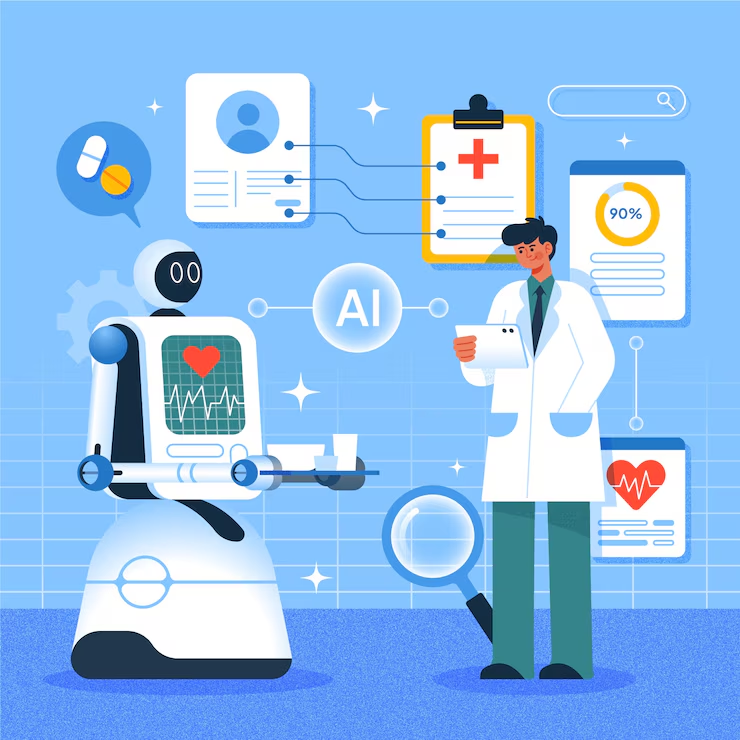Dr. James Wilson still remembers the breaking point. He was examining a child with concerning symptoms when his office manager interrupted—for the third time that hour—with “urgent” phone questions. Insurance verification for one patient. Prescription clarification for another. A specialist needing consultation on a third.
“I realized I was spending more time on administrative phone calls than with the patients sitting right in front of me,” Dr. Wilson recalls. “That’s when I knew something had to change.”
His experience reflects a growing crisis in healthcare. A recent study found physicians now spend nearly two hours on administrative tasks for every one hour of direct patient care. Phone communication represents the largest single component of this administrative burden.
The Healthcare Communication Challenge

Medical practices face unique phone demands:
- High-volume, time-sensitive patient calls requiring clinical judgment
- Constant interruptions during patient care for “urgent” questions
- Complex scheduling across multiple providers and resources
- Prescription refill requests requiring verification
- Insurance and billing questions requiring specialized knowledge
- After-hours concerns requiring appropriate triage
These interruptions don’t just consume time—they fragment attention, contribute to burnout, and diminish the quality of patient encounters.
How AI Phone Systems Are Transforming Medical Practice
Healthcare providers using specialized AI phone systems report dramatic improvements in both operational efficiency and patient satisfaction. These HIPAA-compliant systems:
- Answer calls instantly, eliminating hold times and phone tag
- Handle routine requests like appointment scheduling and prescription refills
- Provide consistent information about procedures, policies and insurance
- Screen and route calls based on clinical priority
- Manage after-hours communication with appropriate triage
- Document all interactions for medical records
All while maintaining the compassionate, professional communication essential to healthcare.
Real Results: More Face Time, Better Care

“The difference has been profound,” explains Dr. Maria Rodriguez, a cardiologist who implemented an AI phone system. “My focus during patient visits is completely undivided now. No more interruptions for non-urgent calls. I’m actually practicing medicine again instead of juggling phone tasks.”
The data across medical practices supports her experience:
- 83% reduction in provider interruptions during patient encounters
- 64% decrease in time spent on administrative phone tasks
- 27% increase in patient satisfaction scores
- 31% improvement in charting completion by end of day
- 42% reduction in provider burnout measures
Perhaps most significantly, practices report an average increase of 12.4 minutes in face-to-face time per patient visit—time that was previously consumed by phone-related interruptions.
Beyond Efficiency: The Patient Experience Impact
Westside Medical Associates implemented an AI phone system after calculating that phone management was consuming 37% of their total staff time:
“We were initially concerned about patient acceptance,” admits practice administrator Julia Chen. “Healthcare feels personal, and we worried patients would resist an AI handling their calls.”
The reality proved quite different:
- Patient satisfaction with phone interactions increased by 47%
- Average hold time decreased from 4.2 minutes to 0
- Appointment no-show rates declined by 26%
- After-hours call resolution improved by 68%
- Staff reported 89% less phone-related stress
“Patients actually prefer getting immediate answers rather than waiting on hold,” Chen explains. “And for our staff, the relief has been immense. Our nurses are practicing at the top of their license again rather than playing phone tag all day.”
Get Your Healthcare AI Phone System—Free

If you’re ready to reduce interruptions and refocus on patient care, you can try a custom-built, healthcare-specific AI phone agent at no cost through an exclusive offer at https://aiphone-agent.profitsolutions.com/.
This free trial includes:
- HIPAA-compliant AI phone agent built for healthcare
- Medical terminology and practice-specific training
- Prescription refill handling protocols
- Appointment scheduling capabilities
- Insurance and billing information management
- 24/7 coverage with a dedicated test phone number
There’s no credit card required and no obligation—just an opportunity to experience how this technology could transform your practice operations while enhancing patient care.
Practice Medicine Again
You entered healthcare to care for patients, not to manage phone systems or juggle administrative calls. The growing administrative burden isn’t just inefficient—it’s a primary driver of the burnout crisis affecting healthcare providers nationwide.
AI phone systems designed specifically for healthcare offer a rare opportunity to reverse this trend—creating immediate, measurable improvements in provider satisfaction, patient experience, and clinical operations.
Visit https://aiphone-agent.profitsolutions.com/ today to get your free custom healthcare AI phone agent. Within 24 hours, you could be experiencing uninterrupted patient care while providing better service to callers.
